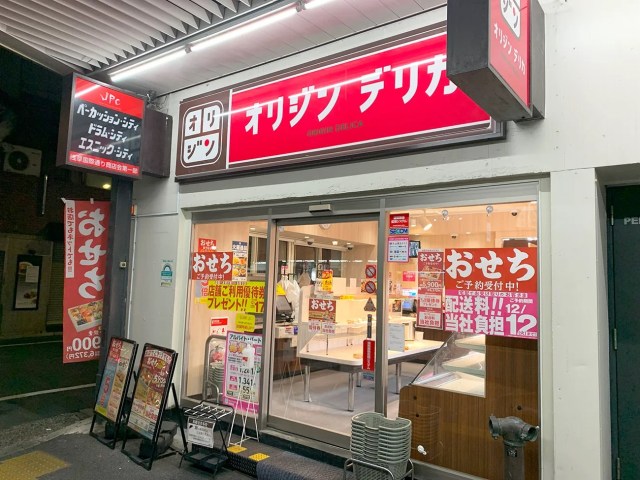
Japan might have a reputation for being high-tech, but it’s still got a lot to learn when it comes to unsupervised shopping.
Unstaffed stores have become more and more popular in Japan recently, with everything from clothes to gyoza now available at any time of the day or night.
Those looking for a Japanese bento or side dish can stop by a well-known chain called Origin Delica, which has an unstaffed store in Tokyo’s Nishi-Asakusa district. Our reporter Seiji Nakazawa, who’d never visited an unmanned store before, popped in one evening to try it out, and when he stepped inside, he couldn’t quite believe that it was unsupervised, albeit with staff hidden out the back, who can be called on if help is needed.
The shelves were stocked with a wide variety of ready-made meals and side dishes, as you’d expect at a regular branch of Origin, but without any staff to be seen, Seiji felt as if he was a character in a video game or some sort of sci-fi world.
▼ “Let’s do some business then, ey!”
It wasn’t just the look of the store that seemed dystopian but the sound too, because for some reason an alarm kept ringing in the background. Turning around to see where the noise might be coming from, Seiji realised it was emanating from one of the cashless registers.
There were three cash registers inside the store, and the one blaring incessantly was in front of a kitchen where staff prepare food. However, nobody seemed to be around to deal with the alarm, putting Seiji on edge.
Peering over at the register that was making the noise, it seemed to be stuck on the payment screen, showing an amount of 478 yen (US$3.16) and the message “If an error occurs, please notify the nearest staff member” in red.
He couldn’t see anybody to call out to, so after picking out his dishes, he took them up to the second cash register, and as he did he saw there were plastic bags available for three yen each.
▼ Seiji couldn’t help but wonder how many customers have taken a bag from here, thinking they might be free.
As this was Seiji’s first time at an unstaffed store, he proceeded carefully to make sure everything he did was above board, scanning each item with an intense level of concentration.
His concentration was soon interrupted as the customer next to him, who was using the third cash register, ran into a problem when they couldn’t progress past the payment screen.
This meant that Seiji’s register was the last one left standing, so he breathed a sigh of relief as he tapped the “proceed to payment” screen…
▼ …but now he was the one in trouble.
A message popped up that read: “The change is near empty. Please replenish change.”
“What the heck?”, thought Seiji, who’d never encountered such bad customer service in all his life. Not only was the store filled with the sound of a blaring alarm, all its cash registers were now out of order.
Desperate to get out of there, Seiji called out towards the back of the store in the hopes that somebody would come out to help him. Eventually, somebody did appear, but they looked just as scared and confused as Seiji.
Thankfully, after assessing the situation the staff member was able to solve the problem, refilling change and resetting the first register, whose alarm seemed to have been activated when a customer forgot to retrieve their credit card.
So in the end, Seiji’s first visit to an unstaffed store turned out to be less than wonderful, but no less memorable, as he was left slightly scarred by the experience. He’d always thought the main problem with unstaffed stores would be shoplifting, but now he realises there’s so much more that can go wrong when we rely solely on technology in a sales environment.
It may still be too early for humans to pull off completely unstaffed stores without a hitch, so until they improve, he’s happy to continue shopping at his supermarket with its self-checkout carts instead.
Photos ©SoraNews24
● Want to hear about SoraNews24’s latest articles as soon as they’re published? Follow us on Facebook and Twitter!
[ Read in Japanese ]



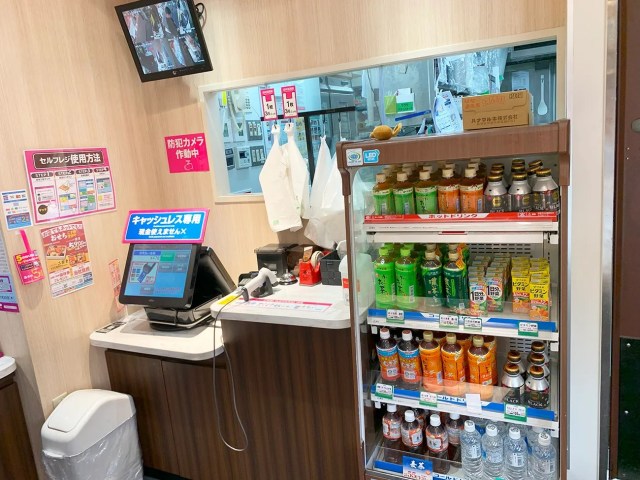

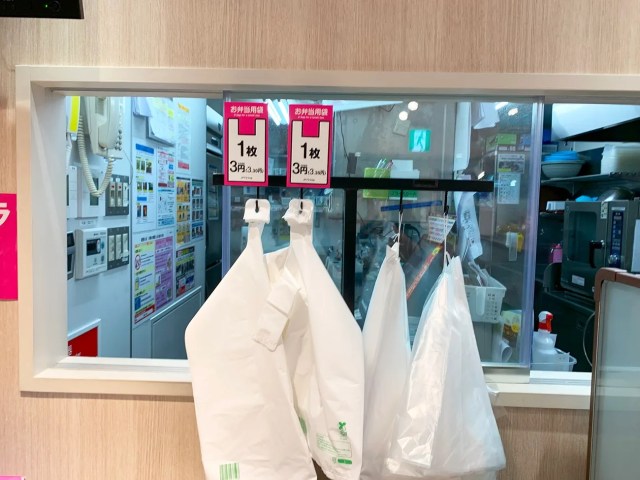
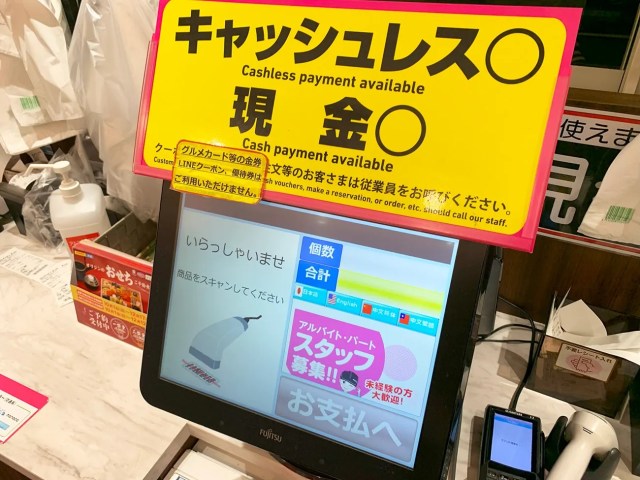
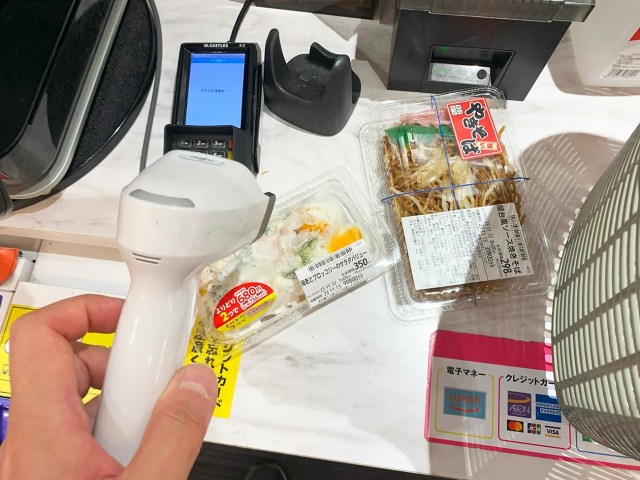
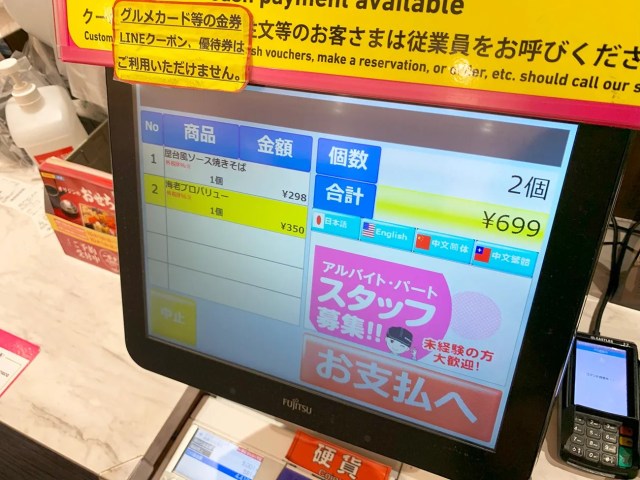
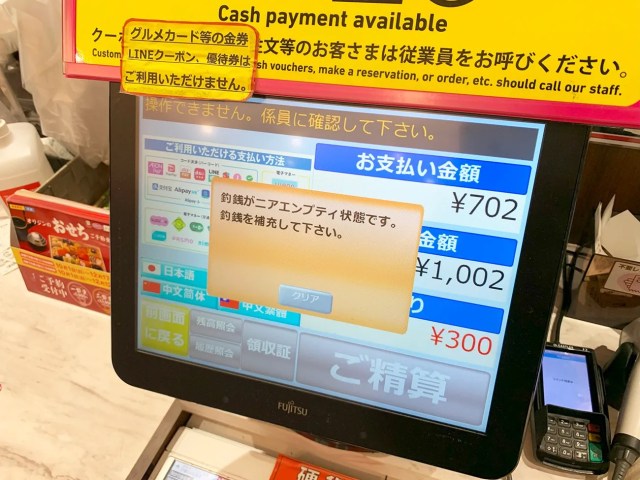
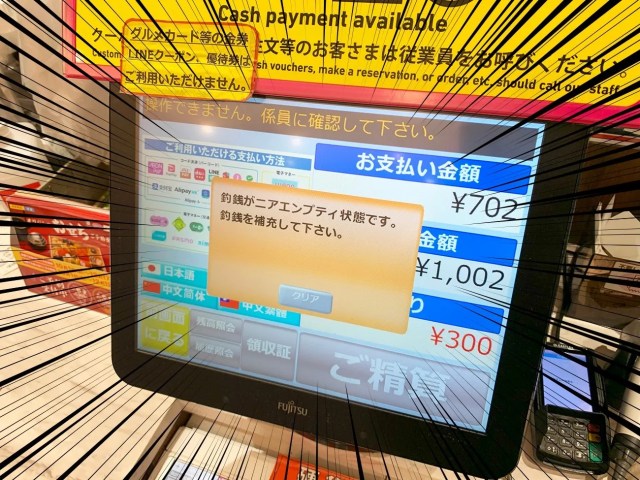
 How to use Japan’s new self-checkout supermarket carts
How to use Japan’s new self-checkout supermarket carts Floating hologram registers coming to Japanese convenience stores【Video】
Floating hologram registers coming to Japanese convenience stores【Video】 Does Tokyo’s King of Tonkatsu live up to its name? We find out 【Taste Test】
Does Tokyo’s King of Tonkatsu live up to its name? We find out 【Taste Test】 Japanese confectionary chain Chateraise opens first 24-hour branch with self-checkout
Japanese confectionary chain Chateraise opens first 24-hour branch with self-checkout Noodle joint in Harajuku becomes a hot topic with foreigners on Reddit, but is it any good?
Noodle joint in Harajuku becomes a hot topic with foreigners on Reddit, but is it any good? Foreigner’s request for help in Tokyo makes us sad for the state of society
Foreigner’s request for help in Tokyo makes us sad for the state of society Japanese-style accommodation at the new Premium Dormy Inn hotel in Asakusa will blow your mind
Japanese-style accommodation at the new Premium Dormy Inn hotel in Asakusa will blow your mind Mikado Coffee is a 76-year-old coffee chain with a major celebrity connection
Mikado Coffee is a 76-year-old coffee chain with a major celebrity connection Japanese city loses residents’ personal data, which was on paper being transported on a windy day
Japanese city loses residents’ personal data, which was on paper being transported on a windy day Do Hi-Chew-flavor Hi-Chews have a reason to exist?【Taste test】
Do Hi-Chew-flavor Hi-Chews have a reason to exist?【Taste test】 Japan’s summertime towelket pillowcases are even better with the addition of Ghibli stars【Photos】
Japan’s summertime towelket pillowcases are even better with the addition of Ghibli stars【Photos】 Ghibli Park now selling “Grilled Frogs” from food cart in Valley of Witches
Ghibli Park now selling “Grilled Frogs” from food cart in Valley of Witches Seaside scenery, history, and so many desserts on Yokohama’s Akai Kutsu【Japan Loop Buses】
Seaside scenery, history, and so many desserts on Yokohama’s Akai Kutsu【Japan Loop Buses】 Red light district sushi restaurant in Tokyo shows us just how wrong we were about it
Red light district sushi restaurant in Tokyo shows us just how wrong we were about it Should you add tartar sauce to Japanese curry rice? CoCo Ichi makes diners an unusual offer
Should you add tartar sauce to Japanese curry rice? CoCo Ichi makes diners an unusual offer McDonald’s new Happy Meals offer up cute and practical Sanrio lifestyle goods
McDonald’s new Happy Meals offer up cute and practical Sanrio lifestyle goods Japanese ramen restaurants under pressure from new yen banknotes
Japanese ramen restaurants under pressure from new yen banknotes French Fries Bread in Tokyo’s Shibuya becomes a hit on social media
French Fries Bread in Tokyo’s Shibuya becomes a hit on social media New private rooms on Tokaido Shinkansen change the way we travel from Tokyo to Kyoto
New private rooms on Tokaido Shinkansen change the way we travel from Tokyo to Kyoto Tokyo Tsukiji fish market site to be redeveloped with 50,000-seat stadium, hotel, shopping center
Tokyo Tsukiji fish market site to be redeveloped with 50,000-seat stadium, hotel, shopping center Beautiful Ghibli sealing wax kits let you create accessories and elegant letter decorations【Pics】
Beautiful Ghibli sealing wax kits let you create accessories and elegant letter decorations【Pics】 Secret Kitchen bento serves Japanese flowers, birds, wind and moon in a box, but is it worth it?
Secret Kitchen bento serves Japanese flowers, birds, wind and moon in a box, but is it worth it? New definition of “Japanese whiskey” goes into effect to prevent fakes from fooling overseas buyers
New definition of “Japanese whiskey” goes into effect to prevent fakes from fooling overseas buyers Our Japanese reporter visits Costco in the U.S., finds super American and very Japanese things
Our Japanese reporter visits Costco in the U.S., finds super American and very Japanese things Studio Ghibli releases Kiki’s Delivery Service chocolate cake pouches in Japan
Studio Ghibli releases Kiki’s Delivery Service chocolate cake pouches in Japan All-you-can-drink Starbucks and amazing views part of Tokyo’s new 170 meter-high sky lounge
All-you-can-drink Starbucks and amazing views part of Tokyo’s new 170 meter-high sky lounge More foreign tourists than ever before in history visited Japan last month
More foreign tourists than ever before in history visited Japan last month New Pokémon cakes let you eat your way through Pikachu and all the Eevee evolutions
New Pokémon cakes let you eat your way through Pikachu and all the Eevee evolutions Disney princesses get official manga makeovers for Manga Princess Cafe opening in Tokyo
Disney princesses get official manga makeovers for Manga Princess Cafe opening in Tokyo Sales of Japan’s most convenient train ticket/shopping payment cards suspended indefinitely
Sales of Japan’s most convenient train ticket/shopping payment cards suspended indefinitely Sold-out Studio Ghibli desktop humidifiers are back so Totoro can help you through the dry season
Sold-out Studio Ghibli desktop humidifiers are back so Totoro can help you through the dry season Japanese government to make first change to romanization spelling rules since the 1950s
Japanese government to make first change to romanization spelling rules since the 1950s Ghibli founders Toshio Suzuki and Hayao Miyazaki contribute to Japanese whisky Totoro label design
Ghibli founders Toshio Suzuki and Hayao Miyazaki contribute to Japanese whisky Totoro label design Doraemon found buried at sea as scene from 1993 anime becomes real life【Photos】
Doraemon found buried at sea as scene from 1993 anime becomes real life【Photos】 Tokyo’s most famous Starbucks is closed
Tokyo’s most famous Starbucks is closed One Piece characters’ nationalities revealed, but fans have mixed opinions
One Piece characters’ nationalities revealed, but fans have mixed opinions We asked a Uniqlo employee what four things we should buy and their suggestions didn’t disappoint
We asked a Uniqlo employee what four things we should buy and their suggestions didn’t disappoint We attend the official release ceremony for the new iPhone 11 in Japan
We attend the official release ceremony for the new iPhone 11 in Japan Takoyaki store in Osaka becomes a hot topic on Reddit, but is it any good?
Takoyaki store in Osaka becomes a hot topic on Reddit, but is it any good? Non-Whisper of the Heart Seiji’s 60x-zoom sneak peek of the real-world Earth Shop at Ghibli Park
Non-Whisper of the Heart Seiji’s 60x-zoom sneak peek of the real-world Earth Shop at Ghibli Park Japanese curry chain is highly recommended by foreigners on Reddit, but is it any good?
Japanese curry chain is highly recommended by foreigners on Reddit, but is it any good? A Gintama fan’s emotional 19-year journey to buy a proper Lake Toya bokuto wooden katana【Pics】
A Gintama fan’s emotional 19-year journey to buy a proper Lake Toya bokuto wooden katana【Pics】 “Hey, Japanese taxi driver, take us to the best seafood joint in Otaru!”
“Hey, Japanese taxi driver, take us to the best seafood joint in Otaru!” McDonald’s Japan has free smiles on its delivery menu, but does asking for one make a difference?
McDonald’s Japan has free smiles on its delivery menu, but does asking for one make a difference? What happens when you cook beer with potato chips in a rice cooker?
What happens when you cook beer with potato chips in a rice cooker? Japanese convenience store clerk outsmarts robber with just two words
Japanese convenience store clerk outsmarts robber with just two words 7 new winter 2022 anime (besides Attack on Titan and Demon Slayer) our otaku reporter recommends
7 new winter 2022 anime (besides Attack on Titan and Demon Slayer) our otaku reporter recommends The best Japanese curry in Japan isn’t eaten at a restaurant
The best Japanese curry in Japan isn’t eaten at a restaurant Eating a shark heart from a Tokyo supermarket【Photos】
Eating a shark heart from a Tokyo supermarket【Photos】 People go crazy for new baumkuchen ice cream in Japan
People go crazy for new baumkuchen ice cream in Japan This Robo Chef will make you perfect fried rice without any need to lift a heavy wok
This Robo Chef will make you perfect fried rice without any need to lift a heavy wok Revolutionary new A.I. self-checkout system in Japan calculates all your items with one glance
Revolutionary new A.I. self-checkout system in Japan calculates all your items with one glance Lawson Store 100 sells two new simple, inexpensive bento showcasing popular Japanese side dishes
Lawson Store 100 sells two new simple, inexpensive bento showcasing popular Japanese side dishes
Leave a Reply